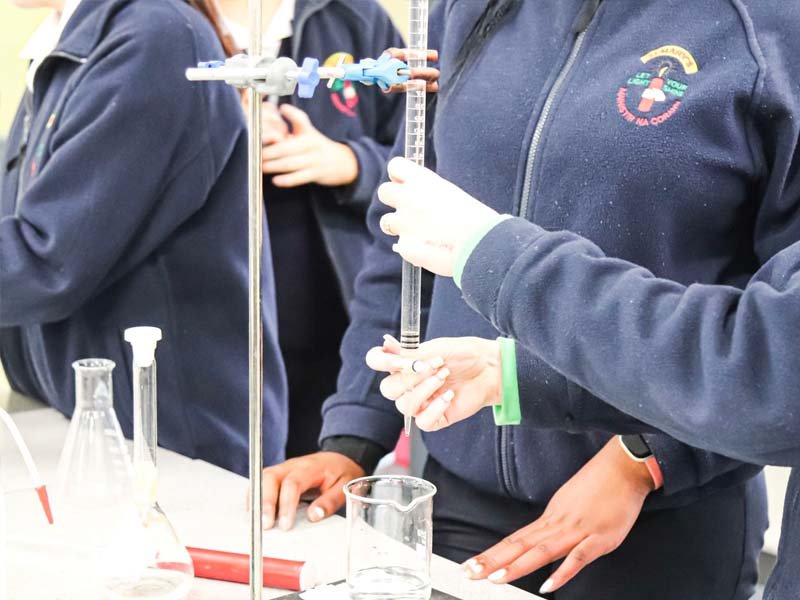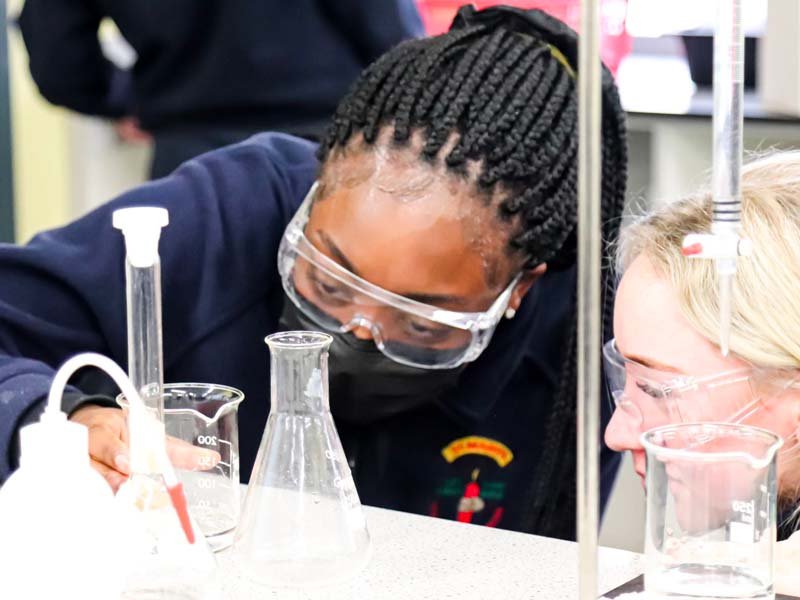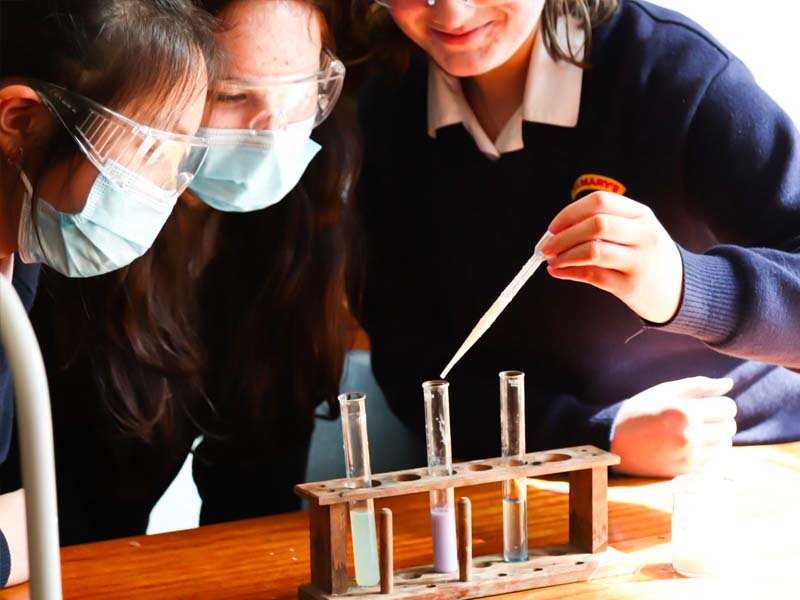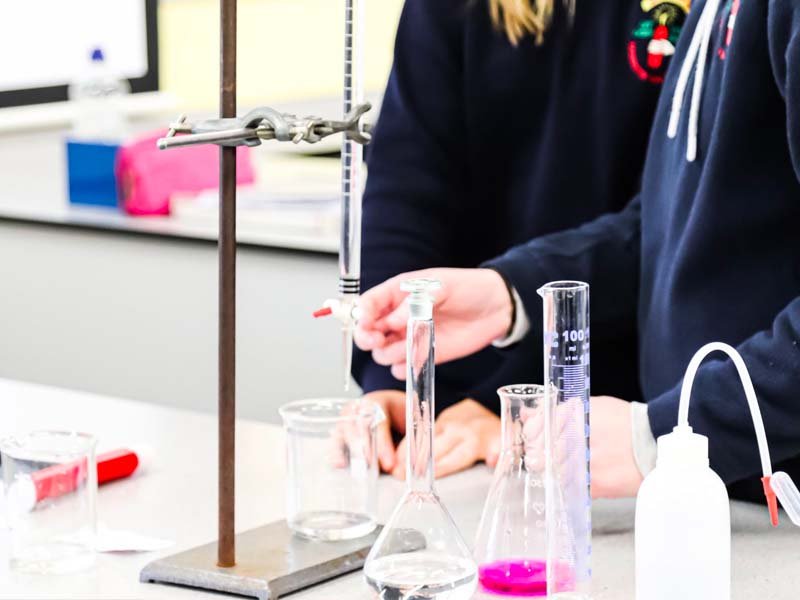Project Description
Programme Specification
Photo Gallery
What is Chemistry?
Chemistry exists everywhere. Not just in laboratories but in every living thing on land, in the sea and in our bodies. It is often described as ‘the central science’ containing a lot of formulas.
Chemistry looks at the world around us and investigates the composition of matter, the laws of chemical changes and the relationships between the properties and composition of substances. It looks at everything we use, wear and consume including medicines, plastics and preservatives.
What kind of Student would Chemistry suit?
Students who:
- Enjoyed Junior Certificate Science and Maths
- Apply attention to detail and can describe the procedures of experiments and understand vocabulary.
- Are considering a career in any scientific discipline, such as chemistry, biology, environmental science, medicine, pharmacology or material science.
- Enjoy practical work
- Are hardworking and like problem solving
Subject Topics / Syllabus Content
The syllabus requires students to develop a range of skills and competencies across the five designated areas of language
- The language of Information
- The language of Argument
- The language of Persuasion
- The language of Narration
- The Aesthetic use of language
Over the course of two years students will develop these key skills through their study and analysis of a wide range of texts and genres.
- Novels
- Poetry
- Film
- Non-Fiction Texts
- Drama (Shakespeare is a required area of study for Higher Level Students)
Texts are chosen from the list ‘Prescribed Material for the Leaving Certificate English Examination’ published by the Department of Education each year.
Course Overview
The subject aims to provide a relevant course for students who will complete their study of Chemistry at this level while, at the same time, providing a foundation course for those who will continue to study chemistry or related subjects following completion of their Leaving Certificate.
The Leaving Certificate course follows on directly from Junior Certificate Science and deals with more topics in a lot more depth. The course includes 28 mandatory practical experiments which must be completed in the lab, as well as a written paper including questions on the experiments and examining the theory and applications of chemistry. There are a number of calculations involved. Chemistry is the second most popular science subject.
There is no element of continuous assessment but experimental copies must be available for inspection by State Examinations Commission.
Course Content
The syllabus is comprised of all the essential and relevant topics within general chemistry. The major topics include the following:
- The Periodic Table
- Bonding
- Atomic Structure
- Stoichiometry
- Acid/Bases
- Volumetric Analysis
- Thermochemistry
- Organic Chemistry
- Rates of Reaction
- Water Chemistry
- Optional Industrial and Atmospheric Chemistry or Metals and Electrochemistry
Experimental investigations are an essential part of the Leaving Certificate course. Each student must complete at least 28 mandatory experiments over the duration of the course. Experimental work is examined as part of the Leaving Certificate exam and forms the basis for a minimum of three questions on the exam paper.
Exam Structure
A written examination at higher level and ordinary level comprises 100% of the exam. The Leaving Certificate exam is three hours in duration. Each candidate must answer at least two questions out of three from Section A (experimental section) and a maximum of six questions out of eight from Section B. There are eleven questions in total on the exam paper, each carrying 50 marks.
Skills studying Chemistry will help to develop?
- Laboratory/practical skills
- Observation
- Working as part of a team/on own initiative
- Analysing
- Evaluating
- Communicating/self confidence
- Problem-solving & logical thinking
- Self-discipline & resilience
What students like about Chemistry
- Its practical nature
- Encourages active thinking
- Its link with everyday life
- Problem solving component can be very rewarding
- Allows for a huge scope in self-directed learning and discovery
What students find hard about Chemistry
- Chemical concepts
- It can be time consuming
- Understanding must come before learning
- Needs resilience to ‘keep at it’ and not give up when challenged
Possible Career Options
Chemistry is considered most useful for careers in:
- Forensic Science
- Pharmacy
- Medicine
- Engineering
- General Sciences
- Nutrition
- Nursing
- Food Science
- Biotechnology










